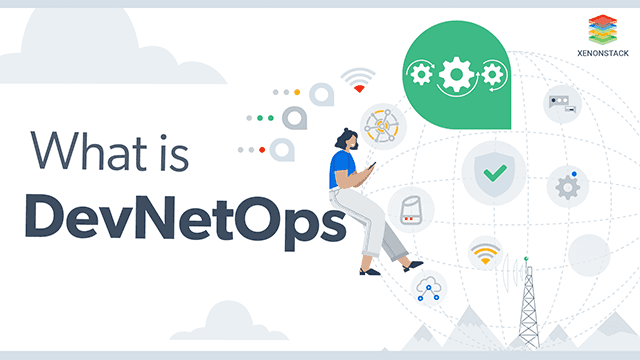
What is DevNetOps?
DevNetOps is the implementation of DevOps principles, philosophies, and behaviors to the network operations (NetOps). In DevNetOps, the DevOps mentality is all around the network ops. DevOps philosophies originated with the culture of software engineering and lean manufacturing revolution that occurred during the 1980s-2000s. The principles of DevOps are commonly known as CALMS- culture, automation, lean, measurement, and sharing. One of the most referenced DevOps principles counters the waterfall methodology- where building, testing cycles, and planning implemented in long sequential stages. The DevOps research has shown that for IT and manufacturing industries, smaller and more frequent deployments result in the higher operational speed, agility, and improved quality. Reliability is a crucial prerequisite, For the organizations to quickly meet their business goals! Having speed without the ability to maintain it, will often fail and failing fast is beneficial to the organizations only if they can improve between iterations. A recent and popular implementation of DevOps is the site reliability engineer (SRE) role. Similarly, DevNetOps is implemented by the network reliability engineer (NRE) role. The DevNetOps pipeline automates the progress between engineering changes and production deployments, to reduce the lead time between development and deployment, and work in shorter, faster cycles with smaller deployment changes deliverables. Committing the code to a versioned code repository triggers a continuous integration (CI) pipeline of building and testing. Candidate delivery payloads are tested in virtual environments, Through a series of automatic and manual judgments for a committed, reliable delivery. The state of continuous delivery (CD) pipeline makes sure that the dedicated delivery is always in a deployable state. Continuous deployment is the phase of an automatic push to staging and then production. Before the changes had been pushed into a runtime environment, it is crucial to take the micro-sized architectural units of changes and immutable infrastructure into consideration. Substantial rigid changes are not safe and are slower to form and validate. In continuous deployment, Immutable infrastructure is equally important. It is not efficient nor useful to deploy, and then have an engineer alter the meaning of what deployed. Production run times must be reproducible to test changes and determine how issues can be improved safely. The last piece of DevNetOps is continuous monitoring, measurement, and response. There active and proactive adjustments to the transitory network state use the in - production feedback to service - level indicators. Also, the analyzed telemetry, incidents, and external change requests feed continuous improvements back into the codified state of the networking systems.Benefits of Enabling DevNetOps
- Team culture and behaviors are becoming consistent with reliability engineering that is combined with smaller, more frequent deployment that leads to high performing teams and companies.
- With DevNetOps, it allows speedier integration of vendor systems, especially software upgrades and patches.<l/i>
- It also shortens the gap between the vendor’s time - to - Market and operator time - to – deployment.
- For engineers, DevNetOps reduces the deployment stress and boosts their job satisfaction.
A Holistic Strategy
To know more about DevNetOps and how it reduces lead time between development and deployment we recommend taking the following steps -- Read more about " Network Reliability Engineering"
- Learn More about " DevSecOps Tools and Continuous Security"
- Contact Us for Continuous Security with DevOps Solutions
.webp?width=1921&height=622&name=usecase-banner%20(1).webp)


